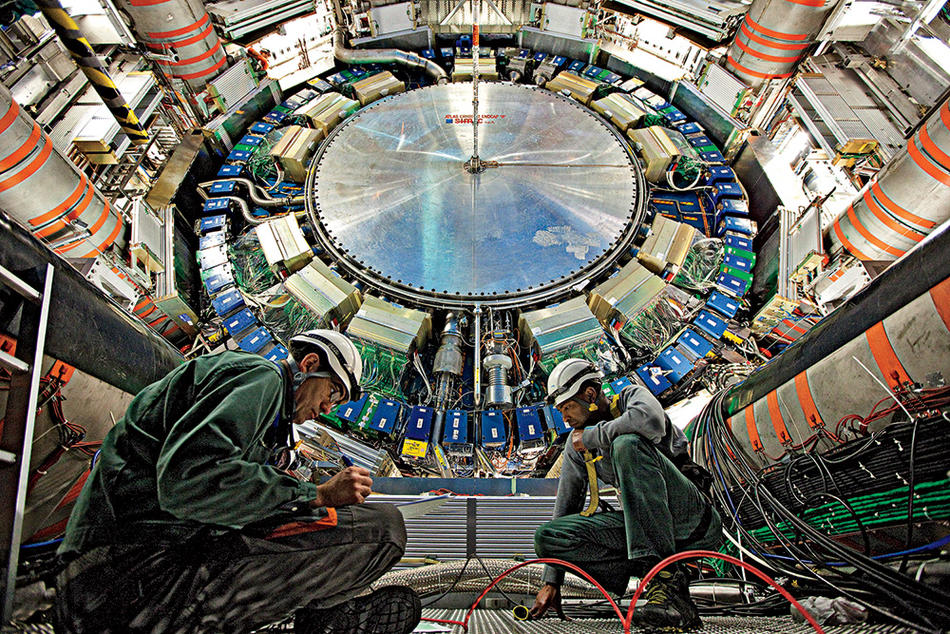A team of Columbia physicists is leading a $75 million, multi-institution effort to increase the power of the ATLAS particle detector at the Large Hadron Collider, outside Geneva.
The upgrades, funded by the National Science Foundation, will dramatically enhance the ability of the seven-thousand-ton machine to detect exotic particles that momentarily appear when protons are smashed together at nearly the speed of light in a seventeen-mile-long circular underground tunnel.
The five-year project, which will involve hundreds of physicists from nearly twenty institutions, promises improvements that “will enable scientists to push the boundaries of discovery, increasing the likelihood of revealing entirely new phenomena — from extra dimensions of space to the building blocks of dark matter,” says Michael Tuts, a professor of physics and the principal investigator on the project. “They will bring us closer to decoding how the universe truly works.”



